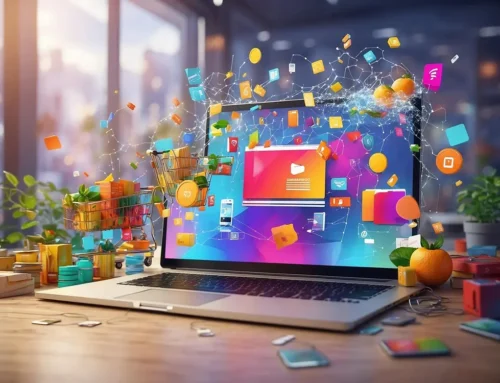Artificial Intelligence (AI) has transcended being a buzzword and become a transformative force in various industries, including music composition and production. From creating entire symphonies to helping artists fine-tune their sound, AI is reshaping how music is made, distributed, and consumed. This blog dives deep into how AI is revolutionizing music, the benefits it offers, and what the future might hold for artists, producers, and listeners.
Statistics on AI-Generated Music Trends
The AI in music market size globally is expected to reach USD 38.7 Billion by 2033, growing at 25% CAGR during the forecast period between 2024 and 2033.

However, the generative AI in the music market in 2023 was around USD 440.0 million and is projected to show a 30% CAGR between 2024 and 2030. The technological advancements have resulted in market growth, making artificial intelligence (AI) more accessible. AI’s ability to generate high-quality lyrics, music compositions, and even harmonies has attracted noteworthy attention from businesses, artists, and producers, looking to enhance efficiency.

Role of AI in Music Composition
Artificial Intelligence (AI) is revolutionizing the music industry, fundamentally altering how music is composed, performed, and experienced. With AI’s ability to analyze vast datasets, identify patterns, and generate creative outputs, it’s no surprise that this technology is becoming an integral part of music composition. Let’s explore AI’s transformative role in this space, supported by statistics that highlight its impact.
AI as a Creative Partner
Over 60% of independent musicians have experimented with AI-based tools to compose or enhance their music. AI has emerged as a creative collaborator for musicians, helping them explore uncharted territories in sound and style.
Tools like OpenAI’s MuseNet and AIVA (Artificial Intelligence Virtual Artist) enable composers to create original pieces of music in a variety of genres. These AI systems analyze thousands of compositions to learn the structures, melodies, and harmonies that define different styles.
For example, AI can compose a symphony in the style of Beethoven or create a hybrid genre blending classical music with electronic beats. These tools don’t replace human creativity but amplify it, providing new sources of inspiration.
Breaking Through Creative Blocks
One of the most challenging aspects of music composition is overcoming creative blocks. AI can serve as a catalyst for creativity by generating musical ideas that musicians can build upon. Platforms like Amper Music allow users to input parameters—such as mood, tempo, and genre—and receive tailored compositions to kickstart their creative process.
Tailored Compositions for Individuals
AI’s ability to analyze preferences allows it to create hyper-personalized compositions. Platforms like Endel generate soundscapes designed for specific activities, such as relaxation, sleep, or focus. These AI-generated compositions adapt in real-time, considering variables like the user’s location, time of day, and even heart rate.
This personalization not only enhances the listening experience but also opens up new possibilities for therapeutic and functional music applications, such as stress relief or productivity enhancement.
Customizable AI Models for Artists
AI-driven platforms are also enabling artists to customize AI models that reflect their unique sound. For example, startups like Boomy allow users to create entire tracks using AI while retaining creative control over elements like instrumentation and structure.
AI in Film and Video Game Scores
AI is not just transforming mainstream music but also making a significant impact in industries like film and gaming. AI tools can compose scores that adapt dynamically to scenes or gameplay, creating more immersive experiences. For instance, AI-driven music engines like Jukedeck have been used to create scores for YouTube videos, advertisements, and indie films.
These adaptive scores are particularly popular in video games, where AI-generated music can respond to player actions, ensuring a seamless and engaging auditory experience.
AI in Music Production: Transforming the Sound of Tomorrow
The advent of Artificial Intelligence (AI) in music production has ushered in a new era of efficiency, creativity, and accessibility. From streamlining workflows to enhancing sound design, AI is revolutionizing how producers, artists, and engineers approach the craft. In this article, we’ll explore the profound impact AI has had on music production, backed by statistics and real-world applications that highlight its transformative power.
Automating Tedious Tasks
Music production often involves repetitive processes like noise reduction, audio mixing, and mastering. AI-powered tools, such as iZotope’s Ozone and Neutron, automate these tasks, freeing producers to focus on the creative aspects of production. These tools analyze tracks, identify imbalances, and apply adjustments like EQ, compression, and reverb with precision.
By taking over technical tasks, AI not only saves time but also ensures consistent quality across projects, making it a game-changer for both small-scale creators and large studios.
Faster Mastering Processes
Platforms like LANDR leverage AI to offer instant mastering services. Once a track is uploaded, the AI system analyzes its dynamics, tonal balance, and loudness to deliver a polished, release-ready version. This accessibility is especially beneficial for independent artists who may lack the budget for professional mastering engineers.
Enhancing Sound Design
AI tools such as Google’s Magenta and Adobe’s Audio Sensei enable producers to craft innovative sounds. By using deep learning, these tools analyze existing sounds and generate new, unique sonic textures that would be difficult to create manually.
For example, AI can transform a simple drum beat into an intricate rhythm or generate entirely new instrument sounds by blending characteristics from existing ones.
Real-Time Adjustments
AI is also making sound design more dynamic by offering real-time feedback and adjustments. For instance, platforms like Output use AI to suggest sound variations that match the mood or genre of a track, helping producers fine-tune their compositions effortlessly.
AI-Powered Mixing and Mastering
AI-powered mixing software like Sonible’s Smart: EQ 3 analyzes individual tracks in a project and applies targeted EQ adjustments to ensure balance. These tools adapt to different genres, automatically optimizing the mix for specific styles, from pop to electronic to orchestral.
Mastering with AI Precision
AI is increasingly being used in mastering to achieve industry-standard loudness and tonal balance. Tools like CloudBounce and ARIA cater to producers at all levels, offering affordable options for mastering without compromising quality.
AI in Collaborative Music Creation
AI tools are also fostering collaboration between artists and producers. Platforms like Amper Music and Boomy enable creators to co-produce tracks with AI, combining human creativity with machine efficiency.
These platforms often serve as starting points, generating ideas or stems that producers can refine and build upon, significantly speeding up the creative process.
Democratizing Music Production
AI-powered production tools are making professional-grade music production accessible to a wider audience. A beginner-friendly platform like Spotify and BandLab allows users to create, mix, and master tracks with minimal technical expertise. This democratization is fostering a new wave of independent musicians, resulting in a richer and more diverse music landscape.
Affordable Tools for Independent Artists
For artists on a budget, AI eliminates the need for costly studio time or hiring professional engineers. With subscription-based services and one-time purchases, AI tools provide affordable alternatives for creating high-quality tracks.
How AI is Revolutionizing Live Music and Performance
Artificial Intelligence (AI) is transforming live music and performance, enhancing audience engagement, improving sound quality, and opening up new creative possibilities. By integrating cutting-edge technology, performers and producers are redefining what live music can achieve.
From real-time audio optimization to interactive audience experiences, AI is shaping a future where concerts and performances are more immersive, personalized, and dynamic than ever before.
Enhancing Sound Quality and Real-Time Optimization
Venue-Specific Sound Tuning
One of the most impactful uses of AI in live music is its ability to optimize sound for specific venues. AI-powered tools like D&B Audiotechnik’s Soundscape analyze the acoustics of a venue and adjust audio output in real-time, ensuring that every seat in the house has the best possible sound experience.
These systems dynamically adapt to variables such as audience movement and environmental changes, ensuring consistent quality throughout the event.
Intelligent Feedback Suppression
Feedback during live performances can be distracting and unprofessional. AI-driven tools now detect and suppress feedback before it becomes audible. Platforms like Sonible’s AI-powered plugins analyze microphone and speaker configurations to prevent disruptions during live shows.
Revolutionizing Stage Performances with AI
Interactive Visual Effects
AI enables performers to integrate real-time visual effects that respond to music, audience interaction, or environmental factors. Tools like Notch and TouchDesigner use AI to create visuals that sync seamlessly with live performances, adding an extra layer of immersion.
For example, during Björk’s Cornucopia tour, AI was used to generate visuals that evolved in real-time based on the music’s emotional intensity.
AI-Generated Setlists
AI is also influencing how performers design their setlists. By analyzing data such as past audience preferences, ticket sales, and streaming trends, AI helps artists tailor their performances to specific audiences. This personalization not only enhances the live experience but also strengthens the connection between artists and their audiences.
Improving Audience Engagement
Personalized Concert Experiences
AI-powered apps and platforms are allowing fans to customize their concert experiences. For instance, apps like Wave integrate AI to offer features such as augmented reality (AR) filters and real-time interaction with performers. By 2024, 18% of concert attendees reported using AI-enhanced apps to interact with live performances.
These tools create opportunities for fans to vote on setlists, request songs, or even manipulate live visuals, making every concert feel unique and participatory.
Predictive Analytics for Better Event Management
Promoters and event organizers are using AI to predict crowd behavior, optimize ticket sales, and manage on-site resources effectively. AI platforms like LiveAnalytics analyze ticketing data, weather forecasts, and social media trends to predict attendance and suggest strategies for maximizing engagement.
Challenges in AI-Powered Live Music
Authenticity vs. Automation
While AI enhances live performances, critics argue that excessive automation may dilute the authenticity of live music. The balance between using technology and maintaining human artistry is crucial to preserving the emotional connection audiences expect from live events.
Data Privacy Concerns
AI-driven personalization often relies on collecting and analyzing user data. This raises concerns about data security and privacy, especially as fans interact with AI-powered apps and platforms. To address these concerns, developers must prioritize transparency and data protection in their AI solutions.
Future Prospects of AI in Live Music
Fully Immersive Concerts
As AI continues to advance, fully immersive concerts that blend live music, virtual reality (VR), augmented reality (AR), and real-time interaction will become more common. These events could allow fans to experience performances from perspectives that were previously impossible, such as being on stage with the band or inside a virtual song environment.
AI-Generated Live Performances
In the future, AI-generated performances could become a reality, where virtual artists powered by AI deliver live shows, complete with dynamic improvisation and audience interaction. This innovation could democratize live music, making performances accessible to audiences in remote locations.
Conclusion
AI is revolutionizing live music and performance, offering tools that enhance sound quality, personalize audience experiences, and redefine creative possibilities. While challenges like authenticity and data privacy remain, the innovation potential is boundless. As technology and artistry continue to converge, live music is evolving into an experience that is more immersive, dynamic, and accessible than ever before.
The future of live music lies at the intersection of human creativity and AI innovation, promising a new era of performances that captivate and inspire.
Author Bio
Dilshad Durani is a technology strategist and content creator at Alphanso Technology specializing in innovative music streaming software and video streaming script development. Passionate about the intersection of AI and blockchain, she explores how emerging technologies shape our digital future.





